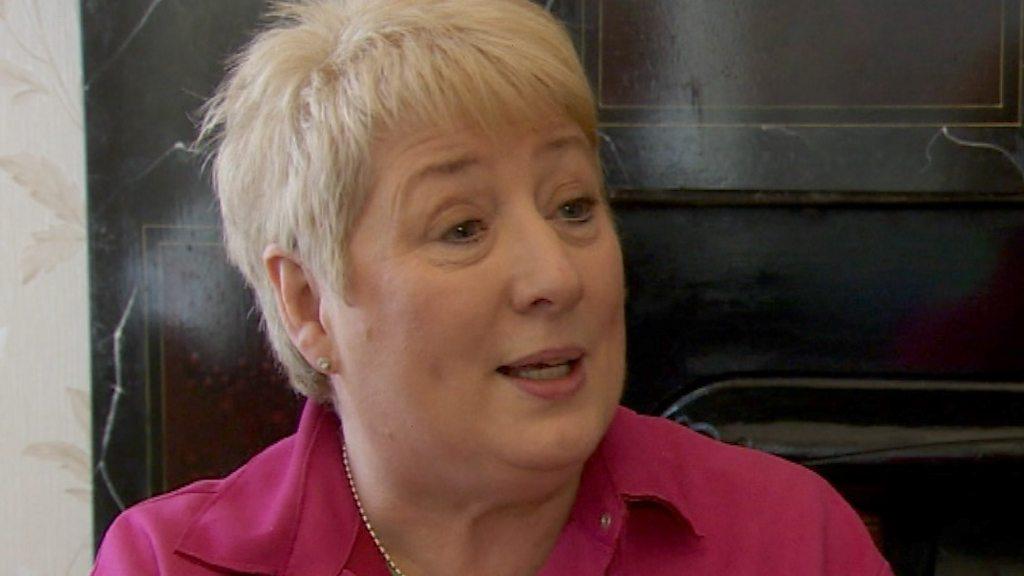Heart disease: Risk in women increases after menopause, says cardiologist
- Published
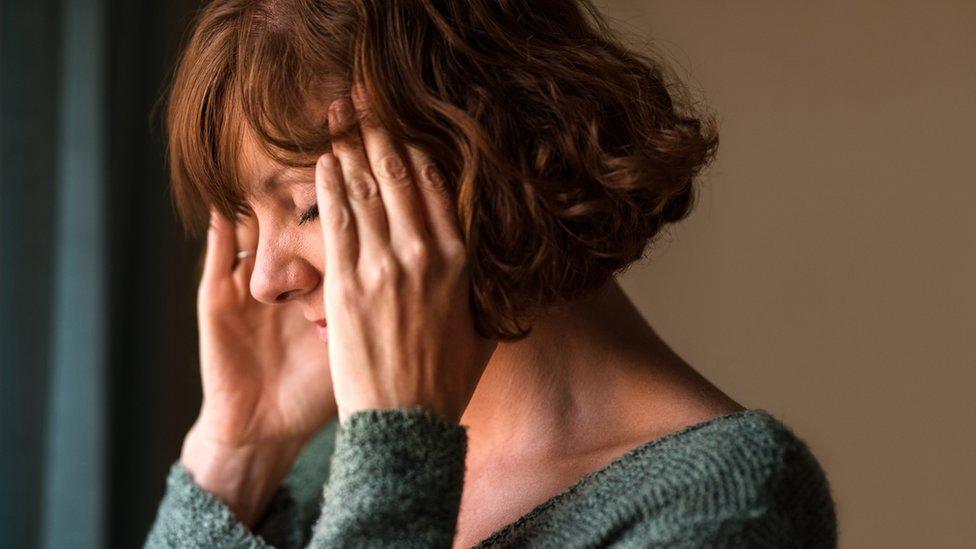
Heart disease is the biggest killer of women worldwide but remains underdiagnosed and undertreated, according to a leading cardiologist.
Dr Susan Connolly, a consultant at Galway University Hospital, said it was crucial women were aware of the risks of heart disease.
The perception that it largely affects men needed to be eradicated, she added.
The risk to women starts to increase at the time of the menopause due to hormonal changes, said Dr Connolly.
"Before the menopause, women's risk of heart disease is much lower than men's but then they rapidly catch up afterwards and it is thought to be due to the decline in oestrogen which is actually a heart protective hormone," she said.
The issue was discussed during a menopause meeting in Londonderry led by consultant gynaecologist Dr Sandra McNeill, who focused on cardiovascular disease.
Speaking to women at the Derry Well Woman centre, Dr McNeill outlined the role of the heart protective hormone oestrogen.
She said she would encourage women to be in the best health they could be when they hit menopause.
This includes not smoking, watching their weight, alcohol intake and exercising.
"Traditionally it was felt that heart problems only happened to men. Unfortunately that is not true.
Marie Dunne urged women to put themselves first
"Women are protected in a certain way up until the menopause by oestrogen.
"Post-menopause women, when we lack oestrogen, our heart health catches up and unfortunately overtakes men in a detrimental fashion.
"We may not have the same symptoms as men, the classic symptoms that we would have been taught at medical school.
"But post-menopausal women are at a higher risk of cardiovascular disease than men and cardiovascular disease in post-menopausal women is the biggest killer."
As women approach the menopause, their levels of the hormone oestrogen fluctuate and decline.
Hormone replacement therapy can be offered to top up oestrogen levels in a woman's body and can help alleviate menopausal symptoms such as hot flushes, night sweats, anxiety and joint pain.
HRT can also have some additional benefits, such as helping to prevent bone loss and fractures. For women under 60, it may also offer some protection against heart disease.
As part of the support clinic, Dr McNeill illustrated a technique known as paced breathing which helps women deal with all menopausal symptoms.
It aims to open up the diaphragm, slow down breath and lower emotional intensity.
One of the those attending, Marie Dunne, said she found the practical advice helpful and that she would be making use of it.
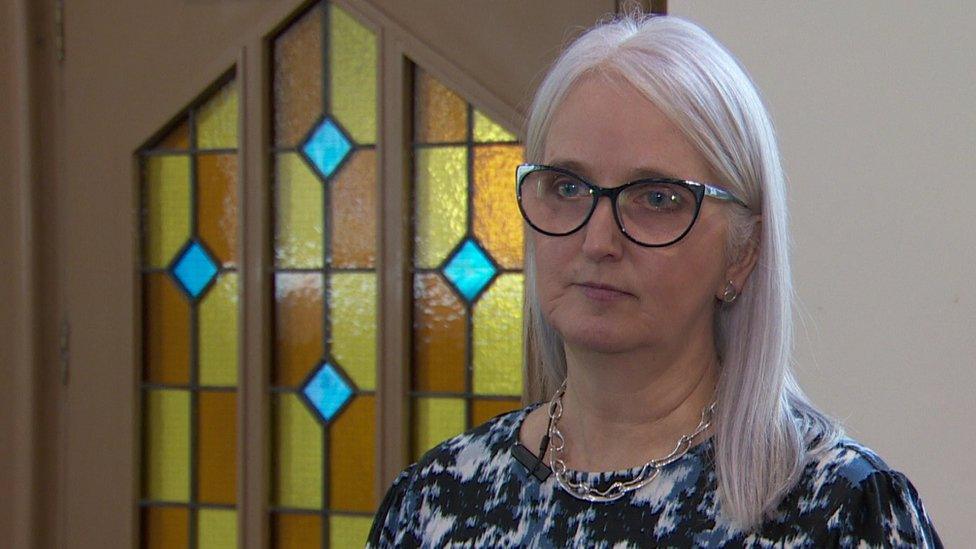
Dr Sandra McNeill emphasised the role of oestrogen in heart health at a meeting in Derry
Ms Dunne, who has cardiomyopathy - a disease of the heart muscle - encouraged all women to be proactive about their heart health.
"There's probably not one woman that hasn't gone for an eye check-up," she said.
"They also encourage us to get our ears done so we can hear better.
"We have two of those - yet one heart."
She urged women to put themselves first.
"Women have a great thing of saying: 'It's grand.'"
"And 'grand' is the biggest lie in the English dictionary.
"So what I would encourage is, if things are going on and you are concerned, reach out and ask."
Biggest killer of women?
Echoing this message, Dr Susan Connolly said she particularly wanted to highlight the issue on International Women's Day.
"Women tend to present later because they don't realise they are having a heart attack, they don't see themselves at risk.
"It's the biggest killer of women worldwide.
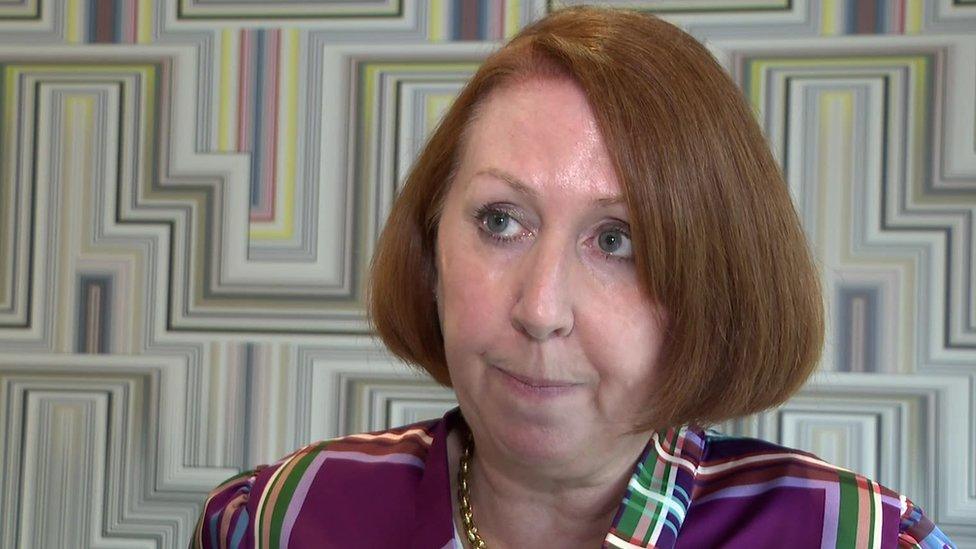
Dr Susan Connolly said women needed to be aware of the risk of heart disease
"More women die from heart disease, twice as many than of breast cancer so it is crucial women are aware of their risk for heart disease and that starts to go up at the time of the menopause."
As well as better physical and mental health, women who want to look after their heart are also advised to watch their cholesterol levels.
Menopause and heart health will be discussed at an all-Ireland virtual event on Wednesday evening hosted by the National Institute for Prevention and Cardiovascular Health.
Related topics
- Published7 November 2024
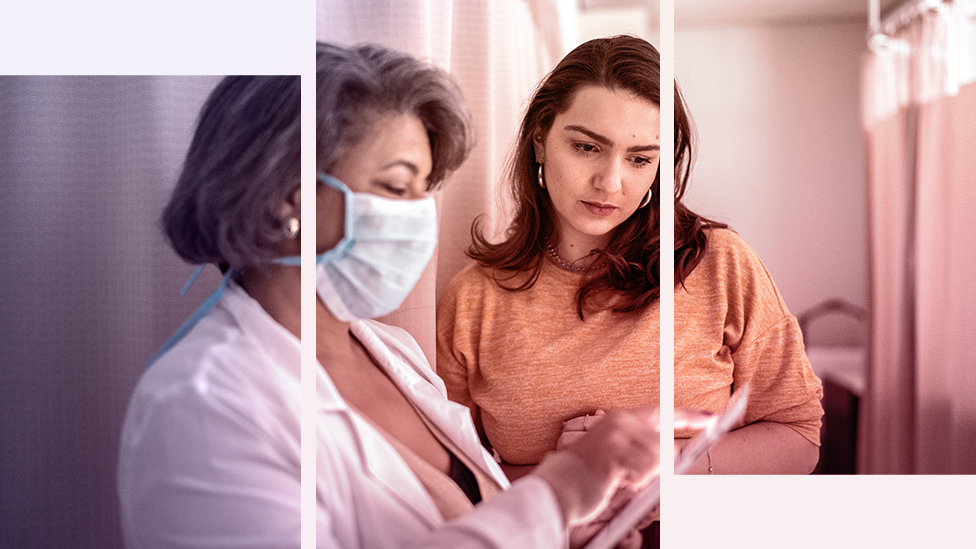
- Published8 March 2023
